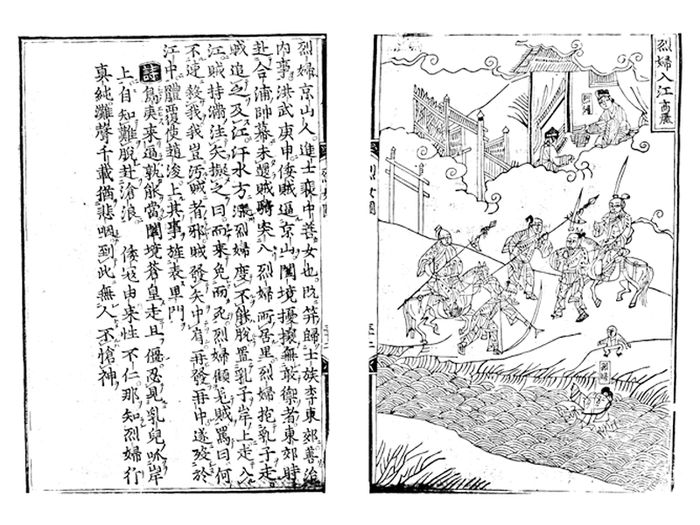(Translation) 2019 烈婦入江
| Primary Source | ||
|---|---|---|
 |
Title | |
| English | ||
| Chinese | ||
| Korean(RR) | ||
| Text Details | ||
| Genre | ||
| Type | ||
| Author(s) | ||
| Year | ||
| Source | ||
| Key Concepts | ||
| Translation Info | ||
| Translator(s) | Participants of 2019 JSG Summer Hanmun Workshop (Intermediate Training Group) | |
| Editor(s) | ||
| Year | 2019 | |
Original Script
【詩】島夷來逼孰能當. 闔境蒼皇走且僵.
忍見亂兒呱岸上. 自知難脫赴滄浪.
倭寇由來性不仁. 那知烈婦行眞純.
灘聲千載猶悲咽. 到此無人不愴神.
Translation
Student Translation : Kristina Kaltenbach
The devoted wife, a person from Kyŏngsan, was the daughter ofjinsa Haejungsŏn. When she was 15 years old, she married literatus Lee Tonggyo. She was good at managing domestic affairs.
In the kyŏngsin year of Hŭngmu reign bandits were closing in on Kyŏngsan and the entire area was in commotion. There was no one daring to resist them.
At the time Tonggyo had gone to a military camp in Habp’o and had not yet returned. The bandits on horses charged into the town in which the devoted wife lived.
The devoted wife, carrying her infant, ran but the bandits chased them until they reached a river. The river water was rising at the time.
The devoted wife figured that she would not be able to escape. She placed her child on the riverbank and then ran into the river.
The bandits held a fully drawn arrow aimed at her and said: “You come and we will spare you from death.”
The devoted wife turned around, looked at the bandits and said scoldingly: “Why not kill me quickly? How would I (ever) become someone defiled by bandits?”
The bandits (then) shot an arrow into her shoulder.
Again, they fired and hit her and thus she died in the middle of the river. Ch’eboksa Chojun reported up the matter and her family was decorated and honored at their gate.
- Discussion Questions:
abcd